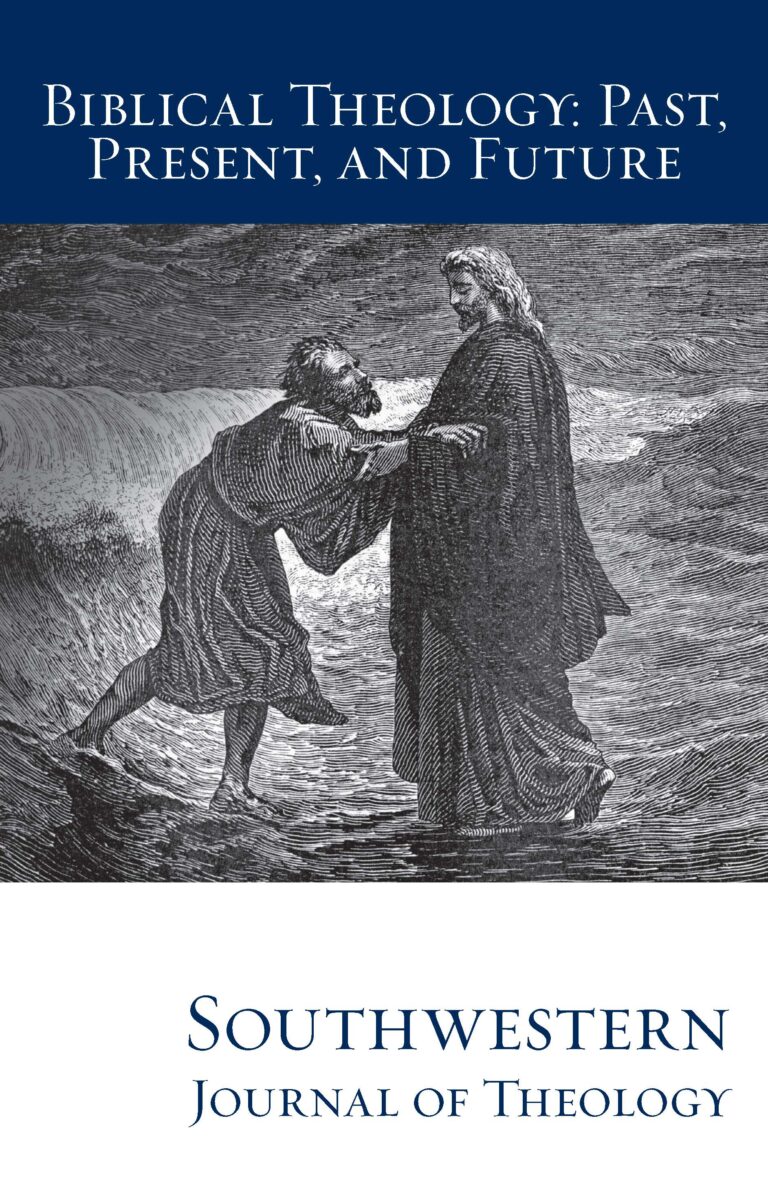
Biblical Theology: Past, Present, and Future (II)
Southwestern Journal of Theology
Volume 56, No. 1 – Fall 2013
Managing Editor: Terry L. Wilder
By Michael J. Vlach. Nashville: B&H Academic, 2010. 224 pages. Softcover, $19.99.
Michael Vlach, professor of Theology at The Master’s Seminary in Sun Valley, California, seeks to answer the complex question regarding the relationship between the church and the nation of Israel. The book, the fruit of Vlach’s doctoral dissertation, includes changes/additions to the Peter Lang edition entitled The Church as a Replacement of Israel: An Analysis of Supercessionism (2009). The work has four parts: an introduction to supercessionism, supercessionism in church history, supercessionism and hermeneutics, and supercessionsim and theological arguments. After setting the foundation in parts one and two, Vlach’s method seems to be, first, to present the case that the church is a complete replacement or fulfillment of the nationalistic promises to Israel, and, second, to evaluate this case based on hermeneutical principles and specific arguments from Scripture.
Vlach defines replacement theology or supercessionism as “the view that the NT Church is the new and/or true Israel that has forever superseded the nation Israel as the people of God” (12). He explains three types of supercessionism (punitive, economic, and structural) and distinguishes between strong and moderate forms. He classifies as moderate those who believe “that the church is the new Israel but still hold to a future for national Israel” (20). In part two, Vlach argues that “the doctrine of supercession has deep roots in church history” (75) by presenting the dominant views of major theologians within the patristic, medieval, reformation, and modern eras, respectively (35–76). Because arguments from church history are not decisive in theological matters, parts three and four of Vlach’s work seem to be the most important.
In part three, he presents and critiques the hermeneutics of supersessionism and offers an alternative nonsupersessionist hermeneutic. Within supercessionism, he notes the following interrelated beliefs: “(1) belief in the interpretive priority of the NT over the OT, (2) belief in nonliteral fulfillments of OT texts regarding Israel, and (3) belief that national Israel is a type of the NT church” (79). In analyzing the starting point of understanding Old Testament passages, the typology of Israel, and the multiple fulfillments of Old Testament prophecy and Christ, Vlach dismisses the supersessionist position and makes a case for a nonsupersessionist understanding. In the final part of the book, Vlach attempts to do at least three things. First, he presents the various Biblical texts used to argue for supercessionism. He categorizes these texts into five primary arguments (chaps 11–12). Second, he evaluates these arguments by questioning the legitimacy of the supercessionist interpretation of the key texts (chap 13). Third, he proposes that God has a plan not only for the nation of Israel, but for nations in general (chap 14). This plan corresponds more closely to a new creation model of eschatology than it does to a spiritual vision model. In the final two chapters, Vlach presents a positive case for the restoration of Israel.
Vlach’s work is a helpful contribution to a very important question in theology. His attempt to keep the argument focused on the Biblical text should be commended, and, if evaluated on these grounds, the attempt is a great success. Despite being wholly committed to the view that God remains true to his promises for Israel as a nation, Vlach writes with an irenic spirit. His writing is also accessible, making it beneficial for the student, pastor, and even layman. There are two recommendations that would seem to make the work even better. First, Vlach chose to present the case for supercessionism in a separate section from critiquing it. Granting that he may have had good reasons for doing so, it seems that the argument may have been clearer if the presentation and critique appeared together. Second, while Vlach does provide a selected bibliography at the end of the work, the work would be more helpful if a comprehensive bibliography of the sources used in the work were included. This would avoid the frustration of having to look for the full reference in the previous footnotes when only a short reference is given.





